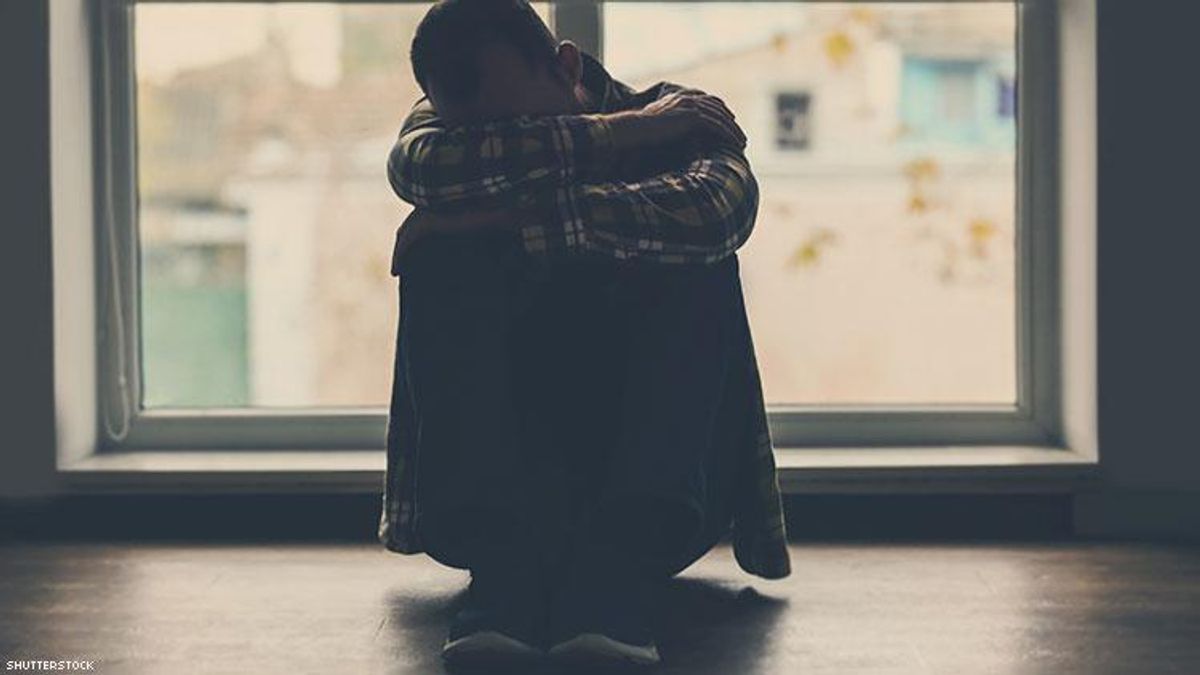My partner got his HIV diagnosis a couple of years before we met. I’m negative, but it’s never been a problem for me. And I thought I was making that clear to him. But over the last few weeks, my partner said a couple of things that really got me thinking.
His medication is working just fine. But last week, he started talking about what could go wrong and he said, “I bet you wish you had a crystal ball before you married me.”
This morning, as we were both leaving for work, he asked me a question that is still on my mind. He kind of half-jokingly asked, “Do you ever feel tempted to forget the way home?”
Now I’m worried that maybe he thinks I might abandon him because of his HIV status. That would never happen. What’s going with him? And how can I help?
First of all, fears of abandonment are normal. But they can be scary for both of you. Here are some ideas for coping, addressed to someone living with HIV who may be having some abandonment issues, as well as for their partner:
Don’t fight the feelings. It’s normal for abandonment fears to come up in a relationship. With or without the additional challenges of living with a chronic condition like HIV. And it’s normal to want to be an equal partner, and to worry that your HIV could somehow cause you to need more support from your partner. This can lead to fears that your partner may get fed up at some point and decide to pack it in. So if your HIV has caused you to have some abandonment fears, or if your partner has these fears, you are sure not alone. As a therapist, I can say this is not uncommon at all.
Clear the air. Fear is often the elephant in the room when someone in the home has a chronic condition like HIV. Most likely, your partner is afraid to bring up his abandonment fears, or doesn’t know how to. And it’s probably hard for you to bring up your concern that he is feeling this way. So it has remained an elephant, wandering around your home. The best way to deal with an elephant is to identify it rather than trying to pretend it’s not there. Here’s a conversation opener: “Sometimes I feel like a burden on you. You didn’t sign up for this. And I worry that at some point you’re going to want to throw in the towel.” Or, “You have made a few comments lately that have got me worried. I’m concerned that you’re afraid I might walk out on you someday.” Get the conversation started. Express your feelings. Be open to listening. This is the beginning of coming to an understanding.
Remember what happens when we assume. What’s potentially destructive about fear of abandonment is that it can lead to a breakdown in communication. Symptoms include: Not asking for help or trying to hide that you aren’t feeling well. Reading the simplest gesture as a sign that the relationship is on it’s way toward ending. Feeling pressured to be supportive in a way that can turn into micromanagement. So this is all the more reason to want to establish open communication about abandonment fears.
It’s okay to ask for reassurance. If you’re living with HIV, let yourself be honest about the need for your partner to give you some reassurance from time to time, to tell you that you are loved, that you are important. And if you are the partner of someone living with HIV, go ahead and ask what you can do to be more reassuring, so your partner doesn’t have to live with the fear that your exit is right around the corner.
Build reassurance into your daily communication. We all can benefit from some reassurance, so why not make it a point to do or say something supportive to your partner each and every day? Be proactive, and take an action that your partner will appreciate, like starting dinner, even if it’s not your turn. Say a few words of kindness, like “I love you. You mean a lot to me.” And don’t make your partner ask for a hug.
If the fear of abandonment becomes overwhelming, reach out for help. Abandonment fears can be a signal that there is something deeper going on. If you feel overwhelmed by fears of abandonment, or if your partner appears overwhelmed, it may be time to get some additional help. So don’t hesitate to get connected with a mental health professional. The bravest thing you can do is to admit that you can’t do all on your own, as an individual or as a couple.
You, your partner, and fears of abandonment. It’s normal to feel this way. But if you see something, say something. Acknowledge abandonment fears. Talk things out. Be clear on what you need. After all, you’re a team.
Gary McClain, PhD, is a therapist, patient advocate, and author in New York City, who specializes in working with individuals diagnosed with chronic and catastrophic medical conditions, their caregivers, and professionals. He maintains a website, www.JustGotDiagnosed.com.








































































